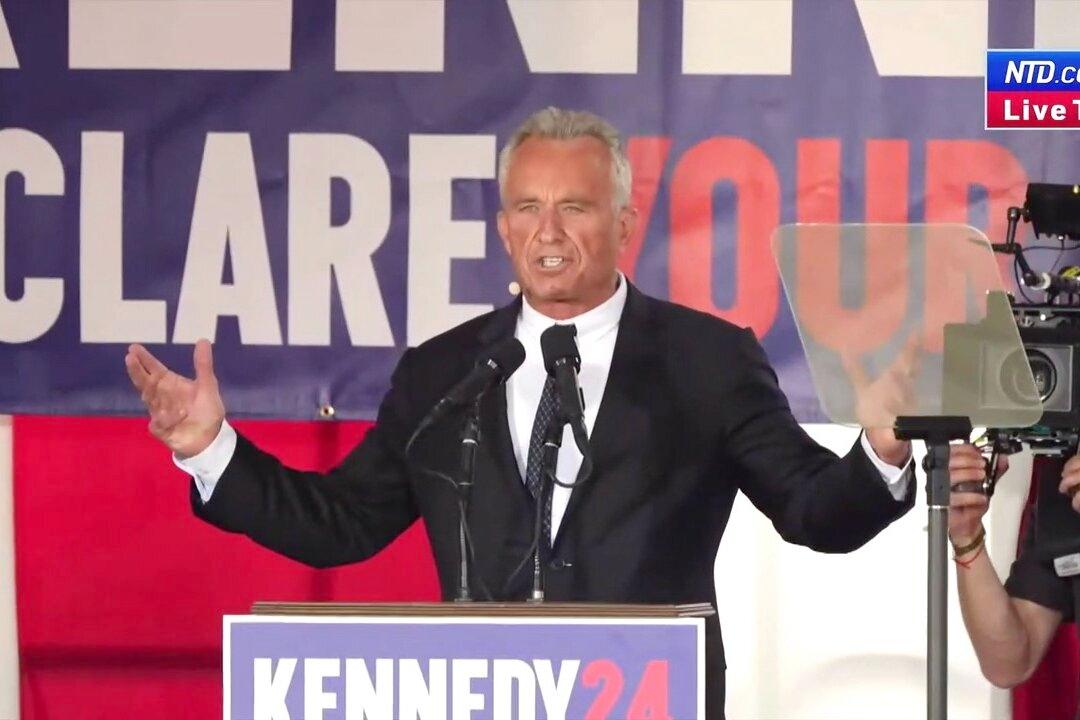Robert F. Kennedy Jr.’s quest to get on the ballot in all 50 states and Washington surpassed its first hurdle with the announcement that he has met the signature requirement to appear on Utah’s 2024 general election presidential ballot.
Mr. Kennedy collected the required number of at least 1,000 verified signatures, according to the Salt Lake County Clerk’s office.





